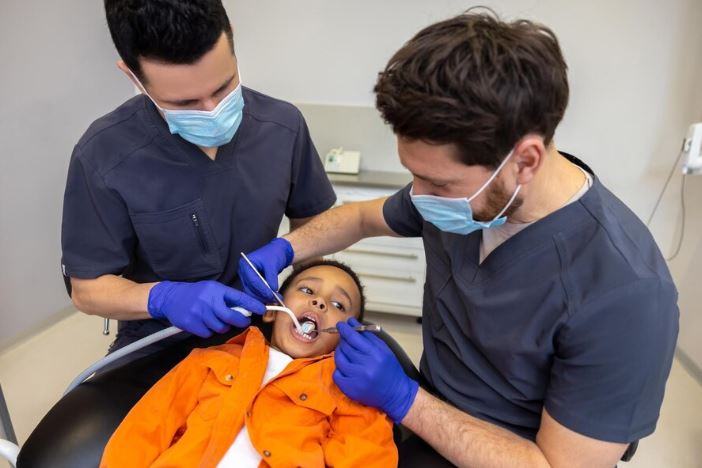Dental emergencies can strike at any time, often without warning. Whether it's a severe toothache, a broken or knocked-out tooth, or a sudden injury to the mouth, these unexpected situations can be not only painful but also potentially damaging to your oral health if not addressed promptly. In such cases, it's crucial to have access to reliable and experienced emergency dental care. In this comprehensive guide, we'll explore the importance of seeking urgent dental treatment and why you should consider partnering with an emergency dentist to ensure the well-being of your teeth and gums.
The Importance of Prompt Dental Emergency Care
When a dental emergency occurs, time is of the essence. Delaying treatment can lead to a wide range of complications, from worsening pain and infection to permanent damage to the affected tooth or surrounding tissues. By seeking immediate care from an emergency dentist you can not only alleviate your immediate discomfort but also prevent the situation from escalating into a more serious and potentially costly problem.
Common Dental Emergencies and Their Consequences
- Severe Toothache: A severe, persistent toothache can be an indication of an underlying infection or other serious dental issue. If left untreated, the infection can spread, leading to more severe pain, swelling, and even life-threatening complications.
- Knocked-out or Broken Tooth: A knocked-out or severely broken tooth requires immediate attention to increase the chances of successful tooth salvage or restoration. Delaying treatment can result in the loss of the tooth or the need for more extensive dental work.
- Oral Injuries: Accidents or trauma to the mouth, such as a cut or laceration, can cause significant bleeding and damage to the soft tissues. Prompt treatment is necessary to control bleeding, prevent infection, and ensure proper healing.
- Lost Fillings or Crowns: The loss of a dental filling or crown can expose the sensitive inner layers of the tooth, leading to pain and increased risk of further damage or decay.
- Abscess or Infection: A dental abscess, characterized by a painful, pus-filled swelling, is a serious infection that requires immediate attention to prevent the spread of the infection and potential complications.
Benefits of Seeking Emergency Dental Care
- Pain Relief: One of the primary benefits of visiting an emergency dentist is the immediate relief of pain and discomfort. They can provide effective pain management solutions, such as prescription medications or emergency procedures, to address the underlying issue.
- Prevent Further Complications: By addressing the dental emergency promptly, you can prevent the condition from worsening, which can lead to more extensive and costly treatments down the line.
- Preservation of Teeth: In the case of a knocked-out or severely damaged tooth, emergency dental care can increase the chances of saving the tooth and restoring its function through procedures like tooth replantation or emergency crowns.
- Reduced Risk of Infection: Dental emergencies often involve open wounds or exposed sensitive areas, which can easily become infected if not treated properly. An emergency dentist can provide the necessary treatment and antibiotics to prevent the spread of infection.
- Improved Overall Health: Untreated dental emergencies can have far-reaching consequences for your overall health, including the potential for the spread of infection to other parts of the body. Seeking prompt emergency care can help mitigate these risks.
What to Expect During an Emergency Dental Visit
When you visit an emergency dentist, you can expect a comprehensive and efficient approach to addressing your dental emergency. The process typically involves the following steps:
- Initial Assessment: The dentist will begin by conducting a thorough examination of your mouth, taking into account your symptoms and the nature of the emergency.
- Diagnostic Tests: Depending on the situation, the dentist may order X-rays or other diagnostic tests to better understand the underlying issue and develop an appropriate treatment plan.
- Pain Management: The dentist will work quickly to alleviate your pain and discomfort, often through the administration of local anesthesia or other pain-relieving measures.
- Emergency Treatment: The dentist will then proceed to perform the necessary emergency dental procedures, such as tooth extraction, temporary fillings, or suturing of oral injuries.
- Follow-up Care: The dentist will provide you with instructions for continued care and may schedule a follow-up appointment to monitor your progress and ensure proper healing.
Choosing the Right Emergency Dentist
When faced with a dental emergency, it's crucial to choose an experienced and reputable emergency dentist who can provide the prompt and high-quality care you need. Here are some factors to consider when selecting an emergency dental provider:
- Availability: Look for a dentist who offers 24/7 emergency services or extended hours to ensure you can receive care when you need it most.
- Expertise: Choose a dentist with extensive experience in managing a wide range of dental emergencies, from acute pain to traumatic injuries.
- Convenience: Consider the location and accessibility of the emergency dental clinic, as well as the availability of parking and other amenities that can make your visit more comfortable.
- Patient-Centered Approach: Opt for a dentist who prioritizes your comfort and well-being, taking the time to explain the treatment process and address any concerns you may have.
- Insurance and Financing Options: Inquire about the emergency dentist's acceptance of your dental insurance plan and the availability of financing options to help manage the cost of treatment.
Conclusion
Dental emergencies can be both painful and disruptive, but with the right emergency dental care, you can quickly regain your oral health and well-being. By understanding the importance of prompt treatment and knowing how to identify the right emergency dentist, you can prepare yourself and your loved ones for unexpected dental crises. Remember, addressing a dental emergency as soon as possible can not only alleviate your immediate discomfort but also prevent long-term complications and safeguard your overall oral health. Don't hesitate to seek the care of an experienced emergency dentist when you need it most – your teeth and gums will thank you.





Comments